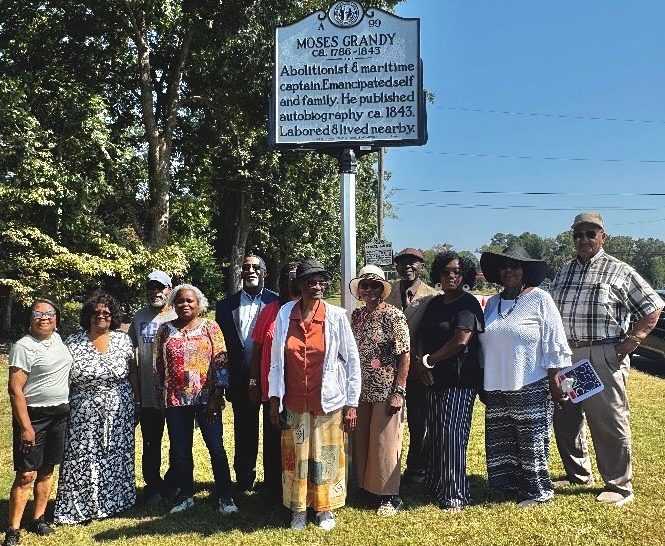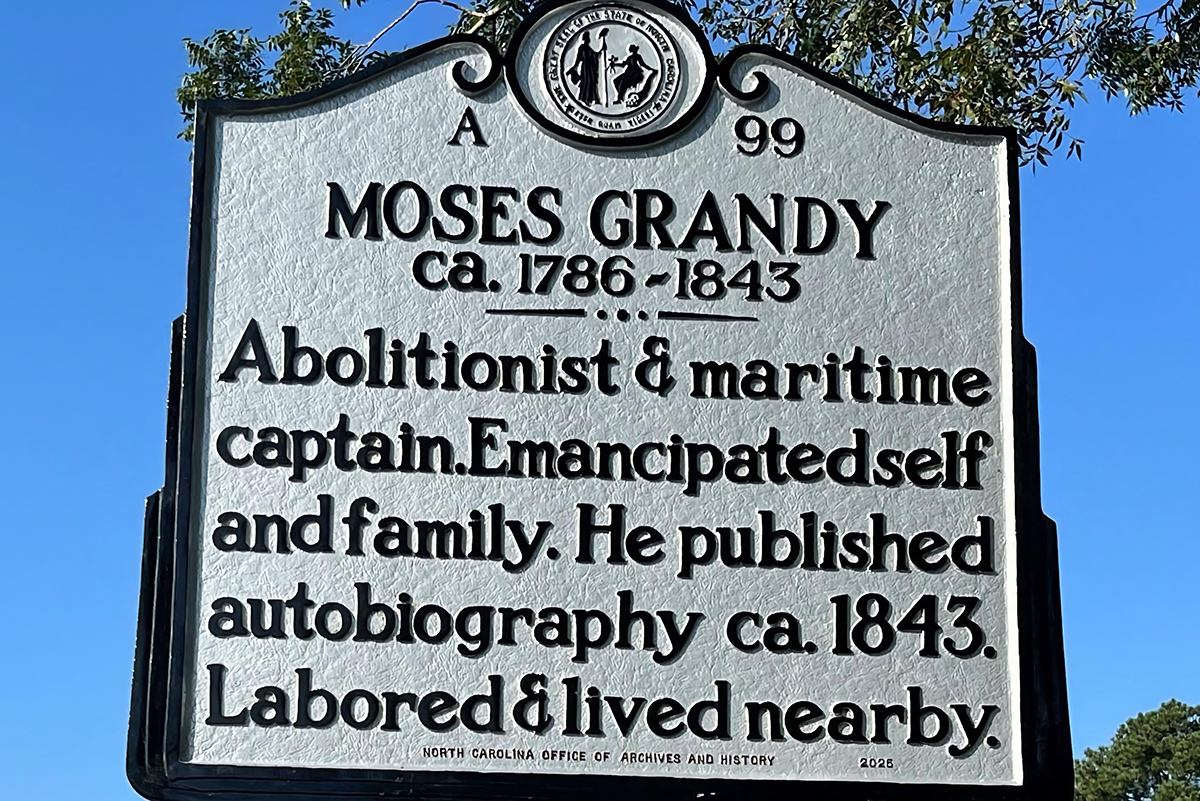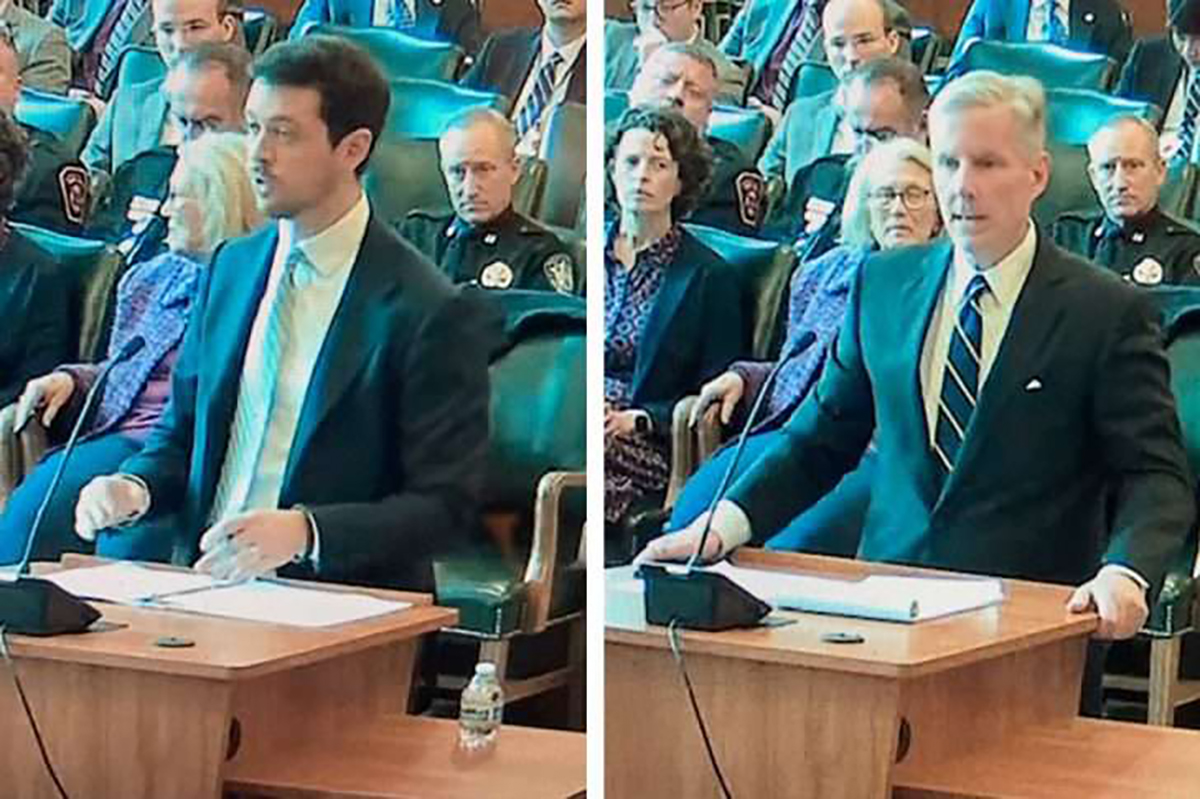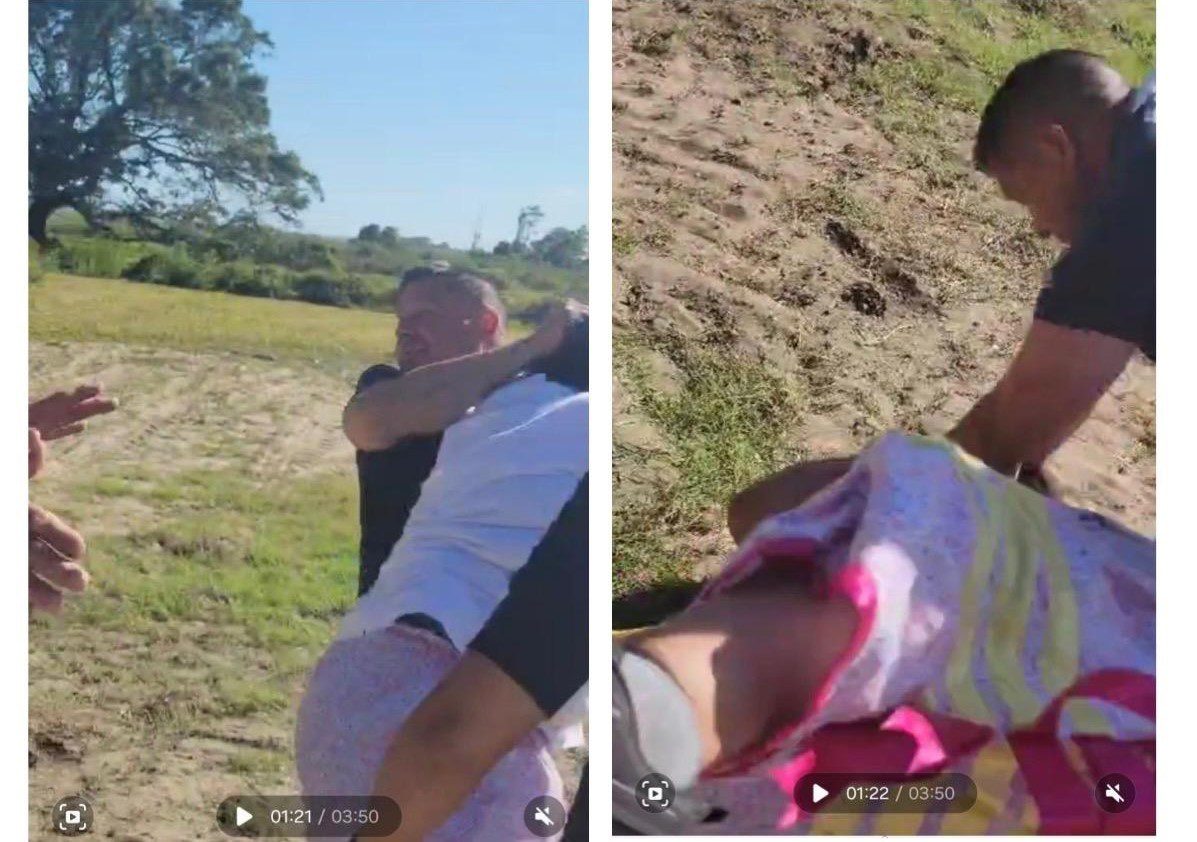
A now-former Onslow County deputy has been arrested in connection with an altercation between residents and a group gathered for a Native American prayer ceremony in Cedar Point, but a group leader says the actions by law enforcement and media in the weeks after perpetuated a racist and biased narrative.
Last week, Carteret County Sheriff’s Office arrested James Gilbert De La O Jr. “for communicating threats, assault on a female and false police report” and was released on a written promise to appear.
Supporter Spotlight
“This case is still active and detectives are still in the process of reviewing new evidence and interviewing individuals that were present during the incident. Further charges may be obtained once all the evidence is reviewed and all interviews have taken place,” the Carteret sheriff’s office said in a statement.
De La O was employed at the time of the incident as a deputy for the Onslow County Sheriff’s Office. He has resigned from the position and his last day was July 12, according to Onslow County.
The incident took place June 23 where the Bridge View development had been on pause for several months because the site contains numerous human remains, which were disturbed during construction. Likely from the before European contact, the Office of State Archaeology believes it to be “a highly significant archaeological site.”
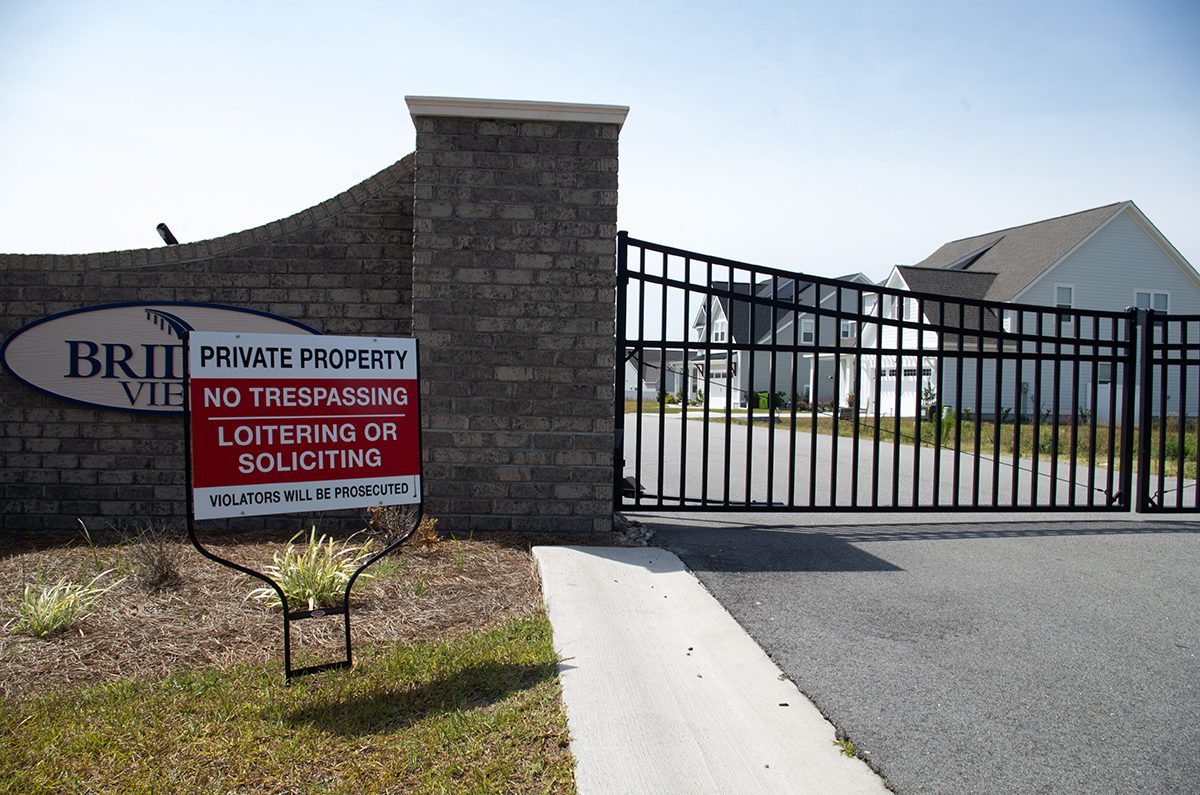
After the ceremonial prayer, American Indian women, children and elders “faced intimidation and hate-induced brutalization during an unarmed, peaceful prayer to honor exposed and desecrated American Indian burial grounds at the Bridgeview housing development in Cedar Point,” 7 Directions of Service said Wednesday in a statement. The Indigenous-led environmental justice organization is based on Occaneechi-Saponi homelands in rural North Carolina.
Shortly after the incident, Carteret County released a statement that said the disturbance was between residents and a group from the Chapel Hill area and New York.
Supporter Spotlight
“Deputies arrived on scene and discovered a physical altercation had occurred and one of the residents from the Bridgeview community was stabbed in the arm with a small pocket knife, along with sustaining other minor injuries,” the June 25 release continues. “The person responsible for the stabbing fled the scene as deputies were arriving.”
Native American leaders associated with the ceremony have said from the start that the attendees were unarmed, having agreed on the tradition to forbid weapons during the prayer.
Dr. Crystal Cavalier-Keck, cofounder of 7 Directions of Service, said earlier this month during one of a few press conferences that she is “outraged and speaking directly about the racism we are experiencing during and in the wake of the violence we experienced.”
Cavalier-Keck explained on July 3 that there was no protest during the prayer ceremony.
“An attack was made against American Indian women, children, and the elderly without provocation,” she said, adding that the dialogue “from the attackers constitutes ethnic intimidation and a hate crime,” and while those gathered were unarmed — no pocket knives were present and no stabbings occurred — the “attackers were armed and dangerous.”
She said that law enforcement had more than enough evidence to make an arrest, and is “delaying the process after issuing warrants for the victims without any delay, and announced this immediately in a press statement. Those warrants have now been recalled, but no press statement has been issued, which has contributed to a racist and biased narrative being perpetuated across media outlets.”
Members of 7 Directions of Service, 17 Rivers American Indian Movement Chapter of North Carolina and the Tuscarora Nation of North Carolina, which has claimed the cultural artifacts and ancestral remains discovered at the Cedar Point site, coordinated and attended the June 23 prayer ceremony.
“We celebrate the win of our innocence being declared two weeks too late after the media has already painted a biased and racist imagery of our culture with some imaginary stabbing and knife-carrier and ultimately protecting nonindigenous dignity and culture,” Cavalier-Keck said during a press conference Wednesday about the charges against the former deputy.
“We do not accept this display of justice as it belittles our value and experience. We take it as a current reflection of the status quo and move from this point on for further healing, accountability and a collective understanding that this horror should have never happened in the first place, and it should never happen again,” Cavalier-Keck continued. “I ask you not to forget the real history nor turn a blind eye to all of that continues to happen. We must seek to eliminate the frequent violence that plagues nations, tribal nations, and bridge our divides, but we must also be warriors for the truth, because without truth, there can be no healing.”
Tuscarora Nation of North Carolina Public Relations Officer Rahnàwakęw Donnie McDowell told Coastal Review on Thursday that the Tuscarora Nation of North Carolina “continues to support the shift in the media tone and overall charges being placed in the right direction.”
The site on the mainland by the Emerald Isle Bridge began getting attention in recent months because it was associated with House Bill 385. The provision that would have changed the permitting process for environmentally and archaeologically significant lands was removed from the bill on the Senate floor June 26 and was sent back to the House, where it waits in committee.
Both 7 Directions of Service and the Tuscarora Nation of North Carolina spoke out against the provision, which could come back up in the General Assembly during the long session expected to begin in January.
Related: Legislature to revisit significant archaeological resources
“From our review of not only UNDRIP (United Nations Declaration on the Rights of Indigenous Peoples) and our treaties, but also with NAGPRA (Native American Graves Protection and Repatriation Act) and several state laws protecting Native American remains, artifacts and sites the Tuscarora Nation reserves the right to be consulted, informed, and provided the opportunity to repatriate the remains of our ancestors and their cultural belongings,” McDowell explained.
“We are reviewing NAGPRA and these state laws in order to better understand how our rights as Tuscaroras are continuing to be violated by the lack of consultation with the TNNC (Tuscarora Nation of North Carolina),” he continued. “Development continues with legislators having the intent to possibly reduce regulations and undermine protections for sites.”
Cavalier-Keck said Wednesday that she was asked why the site in Cedar Point is important.
“A burial site and village are the most important connections to our past, especially here in North Carolina, as we are first-contact tribes, and any tribe that steps up to protect burial sites and incorporates our past into our future is vital, and that is why I’m supporting the Tuscarora Nation of North Carolina, because they have stepped up to protect this burial site,” she said.
A video of the altercation was shown during the press conference Wednesday.
Tuscarora Nation of North Carolina leaders said in a statement Thursday that the long-awaited video evidence “challenges the preconceived tendencies of non-Native media outlets to report before properly investigating all parties involved and general fact finding” and is one example of the oppression that Indigenous families such as the Tuscarora have experienced while fighting to remain a free, sovereign people since colonial contact.
“The Tuscarora Nation of North Carolina stands strong with our tribal citizens and other Native communities, and we will speak against violence of any kind in favor of our community’s tradition to gather in a peaceful, lawful manner to honor our ancestors,” leaders continued.




